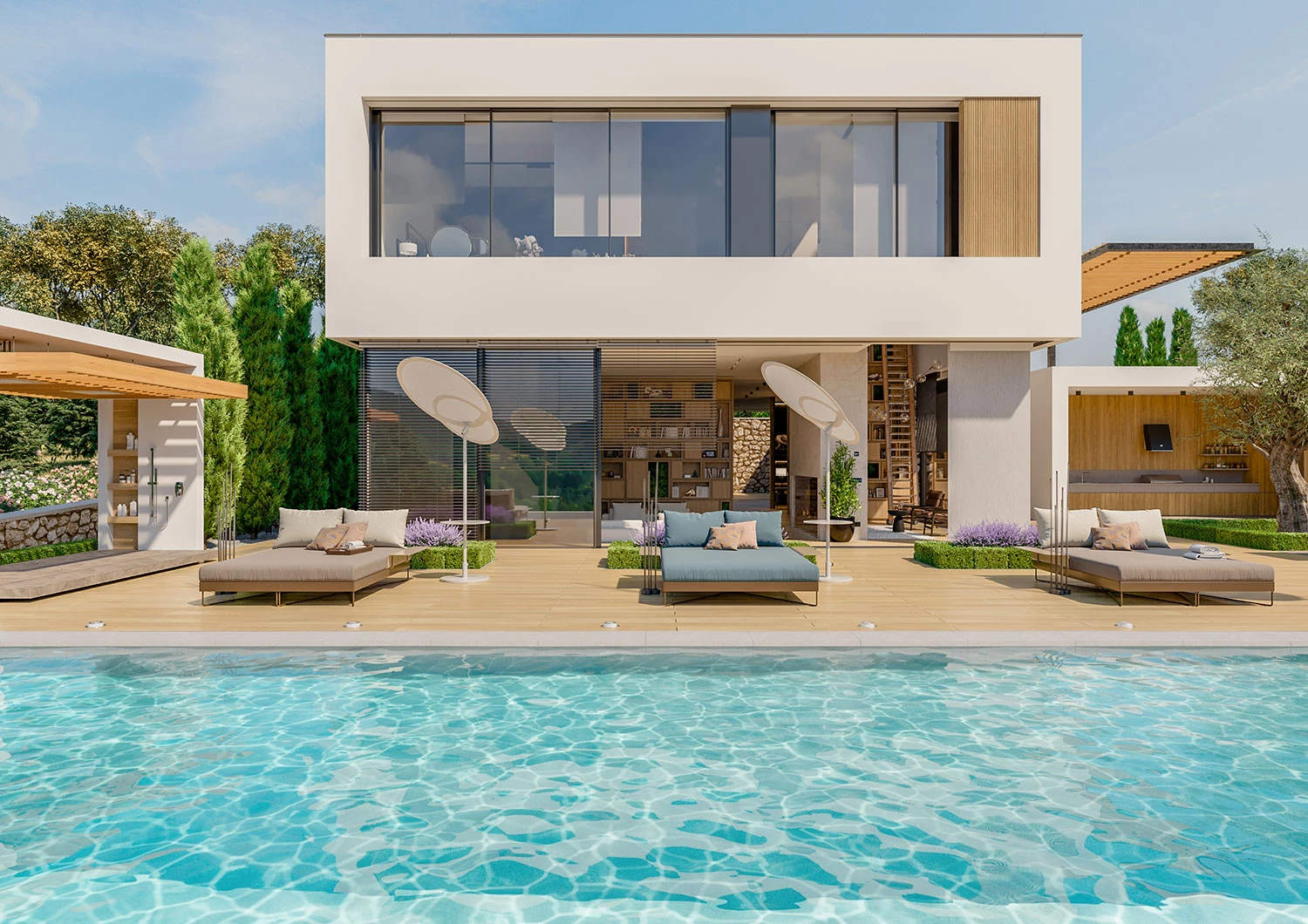Sevenx Properties in Dubai Real Estate Agency
Off-Plan vs Ready Properties in Dubai: What Works for You?

Buying property in Dubai is an exciting journey, but one of the first—and most important—decisions you’ll face is whether to go for an off-plan property or a ready-to-move-in unit. Each option comes with its own pros, cons, timelines, and considerations. Let’s break it down to help you make an informed decision that aligns with your goals, not just the market trends.
What Are Off-Plan Properties?
Off-plan properties are those that are purchased before they are built or while still under construction. Buyers invest based on floor plans, 3D models, and developer promises.
Pros:
Lower entry price: Off-plan properties often come with attractive payment plans and introductory prices.
Capital appreciation: If the market rises during construction, the property can gain value before handover.
Flexible payment terms: Developers usually offer installment-based payments rather than upfront full payment.
Cons:
Delivery risk: There’s always a chance of construction delays or changes in project scope.
Developer reliability: Choosing the wrong developer can result in incomplete or poor-quality projects.
Longer wait: You won’t be able to move in or rent out the property immediately.
What Are Ready Properties?
Ready-to-move-in properties are completed units that can be lived in or rented out immediately after purchase.
Pros:
Immediate returns: Investors can start earning rental income right away.
No surprises: What you see is what you get—no relying on visualizations or mock-ups.
Faster process: The sale, registration, and handover are completed relatively quickly.
Cons:
Higher upfront cost: Ready properties usually require a larger down payment and total investment.
Limited payment flexibility: Unlike off-plan deals, payment plans are less common.
Older condition: Depending on the age of the property, there may be maintenance concerns.
Typical Timelines:
Off-Plan: Delivery ranges from 1.5 to 5 years depending on the developer and phase of construction.
Ready Units: Purchase to handover can be completed in as little as 30–60 days, depending on mortgage approval and paperwork.
Myths Debunked:
Myth: Off-plan is always cheaper. While initial prices are lower, service charges and delays can increase overall costs.
Myth: Ready properties don’t appreciate. Location and quality can drive substantial capital appreciation even in ready units.
Myth: Off-plan is only for investors. Many end-users also buy off-plan to customize their homes and plan for the future.
How Seven X Properties Helps You Decide
At Seven X Properties, we understand that every client is different. Whether you’re looking for an off-plan investment with high ROI potential or a ready home for your family, we prioritize transparency and long-term strategy.
We don’t push deals to meet sales targets. We advise based on your financial situation, goals, and risk appetite. From analyzing developer track records to evaluating community infrastructure, we’re by your side through every step.
Unlike firms driven by developer incentives, we work for you—not for the fastest sale.
Final Thoughts
The decision between off-plan and ready properties boils down to your timeline, budget, and investment goals. Off-plan may suit those looking for long-term gains and payment flexibility, while ready properties are ideal for buyers needing immediate use or rental income.
Either way, Seven X Properties is your partner in making smart, informed, and future-ready property decisions in Dubai.
Frequently Asked Questions
A refundable security deposit of 5% of the annual rent will be expected to be paid on Landlords acceptance of Tenants offer to lease. This security deposit which is held by the Landlord and returned at the end of the term dependant on the condition of the property. You will need to pay your rent up front for the period of lease in the way of post-dated cheques depending on the terms of your agreement. Other costs will include 5% of the annual rent payable to the agency for commission plus 5% VAT. You will also need to budget for the deposits required to be paid for connecting your utilities such as water, electricity, televisions etc. 5% VAT is payable on services provided and will be incurred on utility charges.
A refundable security deposit of 5% of the annual rent will be expected to be paid on Landlords acceptance of Tenants offer to lease. This security deposit which is held by the Landlord and returned at the end of the term dependant on the condition of the property. You will need to pay your rent up front for the period of lease in the way of post-dated cheques depending on the terms of your agreement. Other costs will include 5% of the annual rent payable to the agency for commission plus 5% VAT. You will also need to budget for the deposits required to be paid for connecting your utilities such as water, electricity, televisions etc. 5% VAT is payable on services provided and will be incurred on utility charges.
To rent a property in Dubai, you generally need the following documents:
- A valid Emirates ID or passport for identification
- A residency visa
- A tenancy contract is a legal agreement between the tenant and the landlord outlining the terms and conditions of the rental agreement.
- A security deposit, which is typically equivalent to one month's rent
- Cheques or proof of payment for rent and any other fees associated with the rental agreement
- Ejari
In Dubai, the responsibility for paying service fees for a property is determined by the rental agreement between the tenant and the landlord.
In most cases, the landlord is responsible for paying the service fees. However, in some cases, the rental agreement may state that the tenant is responsible for paying a portion or all of the service fees. This would depend on the specific terms of the rental agreement.
The length of the contract can vary, but it is typically for a minimum of one year. However, landlords and tenants can agree to a longer-term contract if they want.






